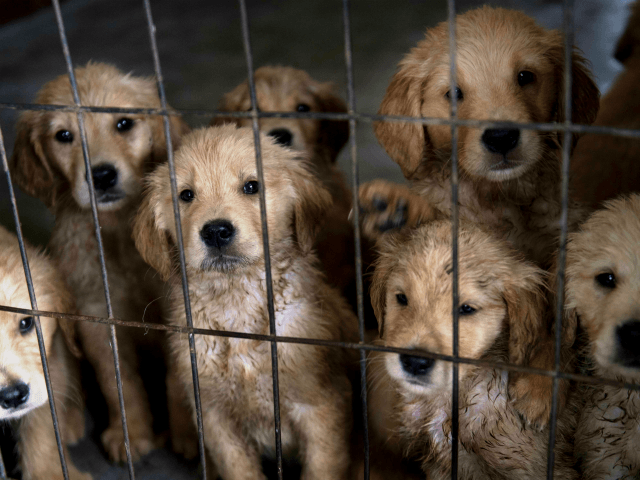North Korean dictator Kim Jong-un is forcing households in the capital, Pyongyang, to turn in their pet dogs to the government so that they may be sold to restaurants for human consumption amid a national food shortage.
“Authorities have identified households with pet dogs and are forcing them to give them up or forcefully confiscating them and putting them down,” a North Korean source told the South Korean newspaper Chosun Ilbo on August 12.
“The dogs are also being sent to zoos or sold to restaurants where dog meat is eaten,” the source added. In addition to North Korea, dog meat is eaten by humans in some parts of China and South Korea.
Kim Jong-un issued a ban on pet ownership in July, denouncing the practice as “a ‘tainted’ trend by bourgeois ideology,” the source said. The Communist North Korean regime touted the pet ban as Kim’s way of protecting the country against capitalist “decadence,” according to Chosun Ilbo.
“Ordinary people raise pigs and livestock on their porches, but high-ranking officials and the wealthy own pet dogs, which stoked some resentment,” the source said.
According to the report, the Communist regime enforced the pet ban and confiscation amid a worsening nationwide food shortage and economic crisis. World powers have imposed various economic sanctions on North Korea for years in an effort to denuclearize the hostile nation. The struggling country further isolated itself by shutting its borders earlier this year in an effort to control its Chinese coronavirus outbreak.
The North Korean regime officially denies the existence of any coronavirus cases in the country, but has taken several drastic countermeasures to prevent the spread of the virus, suggesting that it has been battling a massive outbreak for several months. In January, North Korea closed its borders and schools and began placing thousands of people in quarantine. In late June, North Korean officials locked down the nation’s third-largest city, Chongjin, after a serious coronavirus outbreak was detected there, according to reports. The government also recently said it would extend its border closures through 2021.
In June, the U.N. warned that food insecurity in North Korea had worsened during the coronavirus pandemic due to the country’s closed borders, reporting that some people were “starving” as a result. Over 40 percent of people in North Korea were considered “food insecure” prior to the pandemic, with many people in the country suffering from malnutrition.

COMMENTS
Please let us know if you're having issues with commenting.